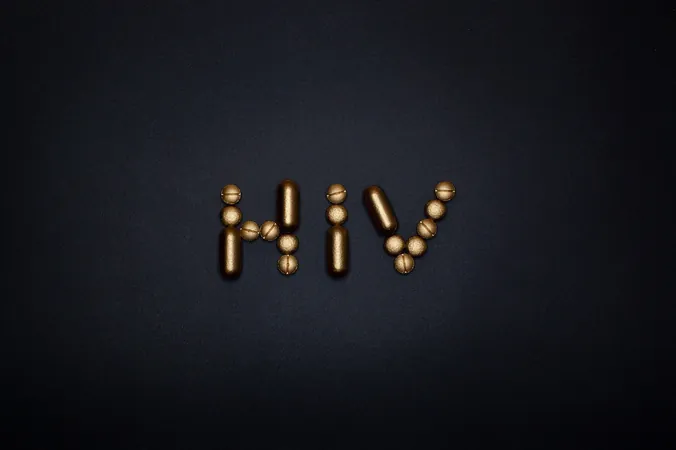
Revolutionary HIV Prevention Drug Poised to Transform Global Health Landscape
2024-12-17
Author: Daniel
In a groundbreaking initiative, leading US and international health organizations unveiled a strategic plan on Tuesday to deliver wide-scale and affordable access to a potentially groundbreaking HIV prevention drug, lenacapavir, to low-income countries. The coalition between The Global Fund, the U.S. President's Emergency Plan for AIDS Relief (PEPFAR), and other influential health stakeholders has set ambitious goals to protect lives and curb the spread of HIV/AIDS effectively.
Lenacapavir, a twice-yearly injectable treatment, has shown promising results in initial trials, proving to be 100% effective in preventing HIV infection. With its recent approval for treating multidrug-resistant HIV in several countries, health experts believe this antiretroviral drug can significantly change the fight against the virus. The Global Fund's statement emphasized that deploying lenacapavir on a large scale, along with existing HIV prevention methods, could greatly accelerate efforts to eradicate the HIV/AIDS public health crisis by 2030.
Currently, the initiative aims to provide lenacapavir to at least 2 million individuals over the next three years, a feat that could dramatically improve health outcomes in affected communities. The World Health Organization (WHO), the Children’s Investment Fund Foundation, and the Bill & Melinda Gates Foundation are also supporting this significant effort, emphasizing the need for regulatory approvals to move forward.
In an exciting move, Gilead, the pharmaceutical company behind lenacapavir, has signed royalty-free licensing agreements with six generic drug manufacturers. This collaboration will ensure the production and distribution of affordable versions of lenacapavir across 120 lower-income countries, making the drug accessible to those who need it most.
Peter Sands, chief of the Global Fund, championed the initiative, stating, "We are incredibly excited by the promise of lenacapavir and its potential to help us achieve a further significant reduction in new infections among individuals at high risk of acquiring HIV." His sentiments were echoed by John Nkengasong, the U.S. global AIDS coordinator, who stressed the need to dramatically lower the 1.3 million new HIV cases observed globally each year to establish a sustainable response to the epidemic.
The anticipation surrounding lenacapavir reflects a broader hope within the global health community to utilize innovative treatments to combat the growing threat of HIV infection. With collaborative efforts, these organizations are paving the way towards a future where HIV/AIDS could become a manageable health issue rather than a devastating public health challenge. As these ambitious plans take shape, the world watches closely, aware that this could indeed be a turning point in the fight against HIV.



 Brasil (PT)
Brasil (PT)
 Canada (EN)
Canada (EN)
 Chile (ES)
Chile (ES)
 España (ES)
España (ES)
 France (FR)
France (FR)
 Hong Kong (EN)
Hong Kong (EN)
 Italia (IT)
Italia (IT)
 日本 (JA)
日本 (JA)
 Magyarország (HU)
Magyarország (HU)
 Norge (NO)
Norge (NO)
 Polska (PL)
Polska (PL)
 Schweiz (DE)
Schweiz (DE)
 Singapore (EN)
Singapore (EN)
 Sverige (SV)
Sverige (SV)
 Suomi (FI)
Suomi (FI)
 Türkiye (TR)
Türkiye (TR)